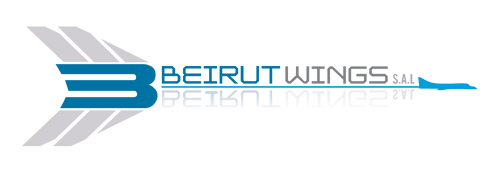Project Information
Certified Flight Instructor (CFI) – Aeroplanes
Now, more than ever, there is a local and regional demand for professional instructors.
As a Certified Flight Instructor, you will be working with student pilots in classrooms, using flight simulators for ground training and practicing acquired flying skills in the aircraft in order to achieve the highest standards.
Through our Certified Flight Instructor Program, you will be provided with the teaching skills and necessary background knowledge that enables you – and your students – to succeed and over perform in our demanding and competitive flight-training environment.
General requirements to be a Certified Flight Instructor:
- Age – An applicant shall be a minimum of eighteen years of age.
- Medical Fitness – An applicant shall hold a valid Class 1 Aviation Medical Certificate.
- Certificates – An applicant shall hold at least a current Commercial Pilot License.
Certified Flight Instructor curriculum:
- Knowledge – An applicant will complete an approved course that includes a minimum of 25 hours Certified Flight Instructor ground school.
- Experience – An applicant will complete a minimum of 25 hours flight training time in aeroplanes.
Certified Flight Instructor Ground Stages
STAGE I
STAGE OBJECTIVE
During this stage I, the applicant will become familiar with learning theories, styles and domains of learning, and communication techniques. The applicant will learn about the teaching process, teaching methods, lesson plans, evaluation of student performance, and human factors.
STAGE II
STAGE OBJECTIVE
During this stage II, the applicant will begin to apply the principles of planning and organizing ground and flight training lessons. The applicant will acquire practical experience by conducting practice ground training lessons. In addition, the applicant will obtain the instructional knowledge required to teach private and commercial pilot students, including recognition, analysis, and correction of common student errors.
Certified Flight Instructor Flight Stages
STAGE I
STAGE OBJECTIVE
During this stage, the applicant will learn the analysis and performance of all the maneuvers required for private and commercial pilot certification from the right seat of the training airplane. Appropriate maneuvers and procedures will be practiced using visual and instrument references, as indicated in the lesson content. Throughout the course, the applicant will use proper crew resource management (CRM) techniques, exhibit positive exchange of aircraft control procedures, and display sound aeronautical decision making (ADM) skills.
STAGE II
STAGE OBJECTIVE
During this stage, the applicant will acquire the instructional knowledge of the elements of each of the listed maneuvers and procedures including the recognition, analysis, and correction of common student errors. The applicant will be able to prepare a lesson plan for each flight in Stage II and will be able to conduct the flight according to the planned lesson, including effective preflight and Post flight instruction.
Certified Flight Instructor – Course Break-up:
|
Type of Training (Ground)
|
Hours
|
|---|---|
|
Flight Briefings (Pre-post briefings)
|
25
|
|
Ground Courses
|
25
|
|
Total Ground
|
45
|
|
Type of Training (Flight)
|
Hours
|
|---|---|
|
Aircraft – Dual
|
25
|
|
Total Flight
|
25
|
Training – Cessna 172S
|
Fees Break-up
|
Hours
|
Price/Hour(USD)
|
Total(USD)
|
|---|---|---|---|
|
Registration
|
–
|
–
|
–
|
|
Flight Training Material
|
–
|
–
|
–
|
|
Annual Beirut Intl airport security gate pass
|
–
|
–
|
–
|
|
*Ground Courses
|
25.0
|
–
|
–
|
|
Aircraft – Dual
|
25.0
|
–
|
–
|
|
Pre/Post Briefings
|
25.0
|
–
|
–
|
|
Flight Test
|
1.0
|
–
|
–
|
|
LCAA Examiner Fees
|
–
|
–
|
–
|
|
LCAA License Fees
|
–
|
–
|
–
|
|
Total Fees
|
25.000
|
||
*The Ground Training is based on the student attending the school, at the scheduled time. Make up lessons for any missed ground training will be held on a one-on-one basis and at an additional ground instruction rate.
Additional Costs
|
Fees Break-up
|
Price/Hour (USD)
|
|---|---|
|
Hourly rate for additional flight instruction in a C172S
|
–
|
|
Hourly rate for additional flight instruction in a C172S G1000
|
–
|
|
Hourly rate for additional ground instruction (one-on-one)
|
–
|
|
Hourly rate for additional pre-post flight briefings
|
–
|
- The hours provided for the Tuition above are the minimum course requirement. According to the overall performance and progress of the pilot additional instruction may be required to meet the proficiency standards required to satisfactorily complete the Flight Instructor Rating Program. The number of additional hours will be determined by the Flight Instructor.
- The Fees may be adjusted without prior notice by Beirut Wings management in the event of unforeseen cost escalation, including but not limited to, rapidly rising fuel costs or increased aircraft flying costs.
- Flight Training Material cost is based on mandatory items needed to complete the course.
